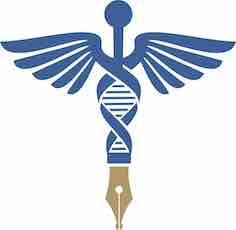Jill Palmer reviews Time to Think: The Inside Story of the Collapse of the Tavistock’s Gender Service for Children, by Hannah Barnes
How did an NHS service that was opened with such high hopes and ideals become so toxic?
 Hannah Barnes’ book digs deep into the rapid rise and dramatic fall of the Gender Identity Development Service for children (GIDs), a nationally commissioned unit at the Tavistock and Portman NHS Foundation Trust, a world-renowned mental health trust in north London.
Hannah Barnes’ book digs deep into the rapid rise and dramatic fall of the Gender Identity Development Service for children (GIDs), a nationally commissioned unit at the Tavistock and Portman NHS Foundation Trust, a world-renowned mental health trust in north London.
The award-winning journalist at BBC’s Newsnight, and MJA member, explains how the vision of a kind, caring service offering talking therapy to children questioning their gender identity evolved into a production line for medication to block puberty.
Expertly researched
Her book is expertly researched with unprecedented access to thousands of pages of documents, including internal emails and unpublished reports, and hundreds of hours of interviews with GIDs’ clinicians and former patients.
Her case studies with youngsters, who both benefitted and suffered from their treatment, are empathetic and compassionate.
We all know this chapter of the scandal ended. Last year, following the recommendation from Dr Hilary Cass, as part of her highly critical official review into the care provided at GIDs, that a “fundamentally different service model is needed”, the NHS announced it would close the GIDs clinic at the Tavistock and replace the service with two new centres in different parts of the country.
Hannah Barnes explains how it came to this. What went wrong. It makes disturbing reading and highlights the importance of not repeated these mistakes at the new centres.
Autism
Despite many of the children and adolescents referred having other mental health issues such as depression, eating disorders, OCD, ADHD, self-harming and autism, these were all put on a back burner once gender was involved. One obvious red flag was the fact that although fewer than two per cent of children in the UK have autism, more than a third of referrals at GIDs presented with autistic traits.
There was contention over the belief that a high percentage of mental and physical health problems in the families of children and adolescents referred could be contributing to the gender identify problem.
Over the years the number of referrals to GIDs exploded. In 2009 there were 97. By 2020 there were 2,500. Pressure on the service was overwhelming and clinicians could barely cope with the huge numbers of patients they had to see. There was less and less time for psychological support.
Undue pressure
Clinicians were harassed to see more patients – increasing numbers of patients meant increasing money for the Trust – and to put them on a medical pathway as the speediest option. There was undue pressure from Trans charities such as Mermaids and the Gender Identity Research and Education Society, who encouraged the prescription of cross-sex hormones.
Medical intervention became the first line of treatment rather than a last resort.
Yet there was insufficient evidence that these distressed and vulnerable young people were being treated correctly. There was very little data of the long-term effects and virtually no follow-up.
Patients and their parents were assured that puberty blockers simply gave them time to think about their decision, that they were fully reversible. This was a lie. They could cause stunted growth, osteoporosis and sexual dysfunction.
Consent
Children were being treated at a younger and younger age, some only nine years old. Were they able to understand and consent to what they were going through? Were they fully aware how the treatment could affect the rest of their lives?
Staff who raised concerns were labelled troublemakers. Those who believed some of the youngsters may want to change gender because of bullying for being gay or lesbian were called transphobic.
Hannah Barnes has done a brilliant job is exposing the discreditable behaviour that led to so much suffering, and the eventual fall from grace of GIDs and the Tavistock Trust.
It is a book that should be read by everyone interested in mental health and how it is seen and treated in the NHS.
But its impact is more widespread than that. There are lessons to be learnt for the whole of the NHS.
Whistleblowers
GIDs was understaffed and under resourced. Whistleblowers were ignored. Staff who raised concerns had their worries dismissed.
By 2020-21 the clinic accounted for a quarter of the Tavistock Trust’s income. They put profits before patients.
GIDs may be a niche service but this picture is familiar throughout the NHS and without intervention could result in thousands of other patients suffering.
Hannah will share insights on investigative journalism at our Symposium on March 25
Time to Think is published by Swift. To buy it, click here



Recent Comments